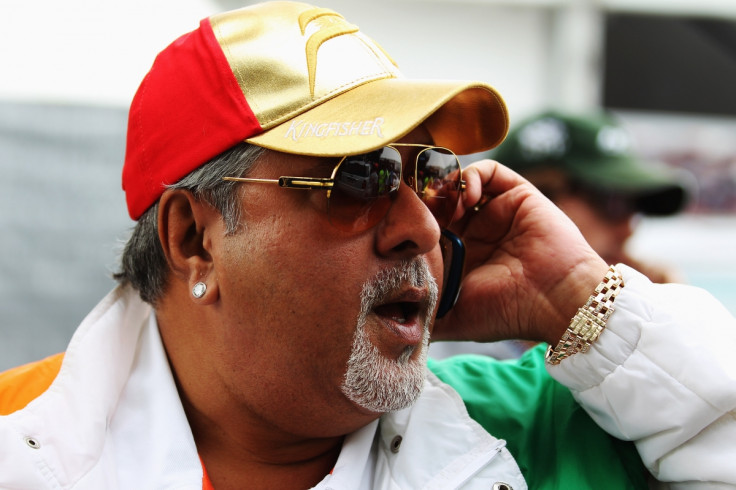Vijay Mallya: Fugitive businessman to consider India return if safety and freedom assured

The owner of the collapsed Kingfisher Airlines, Vijay Mallya, has said he is willing to return to India to answer questions about his debts as long as his safety and freedom is assured. The businessman's comments came during a United Breweries Ltd board meeting, a company he chairs.
The board meeting was held in Mumbai on 13 May, with Mallya appearing via video conference from London. The former "King of Good Times" has been in the UK since March, amid accusations he owes India's state banks £900 million ($1.3bn) in debts.
Kiran Mazumdar-Shaw, independent board member of United Breweries Ltd, told the Economic Times: "We expressed concerns over the various issues and Mallya has assured us that he is in serious negotiations with the banks to repay the loans as soon as possible. He has said he is willing to return to India to answer all questions but he has to be assured of his safety and freedom."
During the meeting, Mallya allegedly said he had made a new settlement offer to the State Bank of India. In late March, the businessman offered to repay a portion of his debt to India's banks by September 2016, however, this offer was rejected.
Mallya has been making international headlines since fleeing India, with many Indians questioning how the government let him slip out of the country. In April, the Indian government revoked Mallya's passport and issued a formal request to the UK government to have him deported, however, this request was denied on 11 May on the grounds that British laws prevent his deportation.
Earlier this month, Mallya spoke to the Financial Times in London to defend accusations of a lavish lifestyle while owing billions of dollars. The fugitive businessman has consistently defended himself on Twitter, saying he is willing to "comply with the law of the land".
On 5 May, he told the FT : "One of the businesses I was involved with failed, sadly. There were other businesses that still exist, which are hugely successful. Should I, therefore, be a hypocrite? Because one of these businesses failed, should I live my life differently? It is what it is. I am not a hypocrite."
© Copyright IBTimes 2024. All rights reserved.






